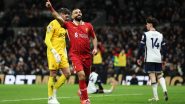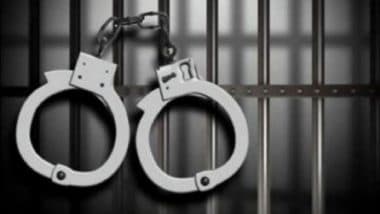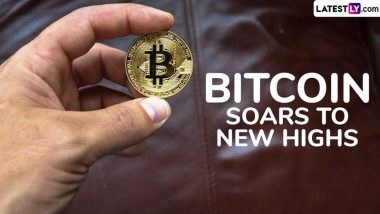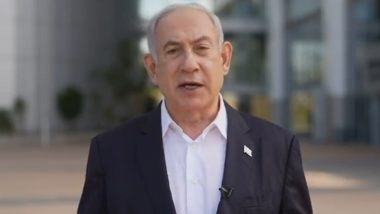Caracas, Feb 13 (AFP) Venezuela's opposition leader Juan Guaido told tens of thousands of supporters on Tuesday that desperately-needed humanitarian aid would be brought into the country on February 23, despite opposition from President Nicolas Maduro.
"It's sure that the humanitarian aid will enter Venezuela because the usurper will have no choice but to leave Venezuela," said self-proclaimed acting president Guaido.
US aid has been piling up in Colombia at the border with crisis-hit Venezuela but until now the bridge border crossing has been barricaded by the military, under Maduro's orders.
"We have almost 300,000 Venezuelans who will die if the aid doesn't enter. There are almost two million at health risk," said Guaido, recognized by 50 countries after declaring himself as Venezuela's interim leader.
Taking his authority from the constitution, National Assembly leader Guaido considers Maduro "illegitimate" following his reelection last year in a poll widely viewed as fraudulent.
Guaido is trying to force the socialist leader from power so he can set up a transitional government and hold new presidential elections. Venezuelans have faced shortages of basic necessities such as food and medicine as the economy collapsed under Maduro.
Some 2.3 million Venezuelans have fled since 2015, as hyperinflation rendered salaries and savings worthless.
Maduro denies there is a humanitarian emergency and has branded the crisis a "political show" and pretext for a US-led invasion.
Foreign Minister Sergei Lavrov warned the US "against all interference in Venezuela's domestic affairs including the use of force threatened by Washington and which is in violation of international law." - Direct order -
"It's not the first time Venezuela is going to be liberated from a tyrant," said Guaido.
"Here is a direct order to the armed forces: allow in the humanitarian aid once and for all (and) end the repression." The fate of tons of aid piling up in Colombian collection centers at the border with Venezuela has become central to the power struggle between Guaido and Maduro, who is backed by the powerful armed forces.
"The military are the ones keeping Maduro in power. I call on them to reflect and take the side of the people suffering from hunger," said Maria Ballera, 75.
Guaido had called the Youth Day demonstrations across the country in part to honor 40 people killed in anti-government rallies last month. While waiting for him to speak in eastern Caracas, his supporters chanted:
"Freedom!" Maduro meanwhile was due to speak at a march of young leftists in the center of Caracas denouncing "imperialist intervention" in Venezuela's affairs and collecting signatures of people who reject US President Donald Trump.
"We want peace for Venezuela," chanted protesters, and "for the threats of military invasion to recede."
Guaido has offered amnesty to military personnel who dump Maduro and told them that refusing to allow in aid was a "crime against humanity." He asked the 250,000 people who signed up as volunteers to bring in the aid to organize themselves over the weekend, "because we're going to have to go in caravans." The Venezuelan government distributed food and medicine on Monday when Guaido's envoys met Brazilian officials and announced plans to establish a second aid storage center in the state of Roraima, on Venezuela's southeastern border, from next week.
But Defense Minister Vladimir Padrino said the armed forces were deploying a "reinforced presence all along the border." Although he has wide international support in his bid to oust Maduro, Guaido needs the backing of the armed forces.
The US has presented a draft resolution to the UN Security Council calling for international aid deliveries and new presidential elections. Lavrov said the move was an attempt "to destabilize the situation in Venezuela and even gain an excuse for direct military intervention." Speaking to AFP last week, Guaido refused to rule out asking for foreign intervention.
Venezuela is oil dependent and sells more than 40 percent of its crude, which makes up 96 percent of its revenue, to the US, while Washington is using sanctions as an attempt to starve Maduro's regime of its funding. "Venezuela is in the eye of a global geopolitical hurricane," said Maduro, who claims Trump is trying to force him out in order to take control of Venezuela's oil reserves, the largest in the world.
In an interview with the BBC aired on Tuesday he called for Britain to return "more than 80 tons of gold" reserves deposited in London. UN Secretary General Antonio Guterres renewed his offer on Monday to help broker talks to end the political stalemate. Guaido has rejected negotiations with Maduro, believing he would use them to buy time.
Guaido is due to speak via video link at a conference in Washington on Venezuela's humanitarian crisis hosted by the Organization of American States. (AFP)
(This is an unedited and auto-generated story from Syndicated News feed, LatestLY Staff may not have modified or edited the content body)













 Quickly
Quickly





















